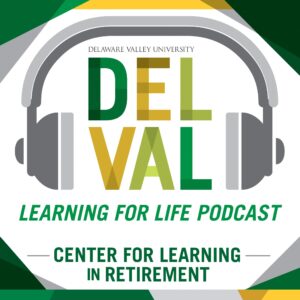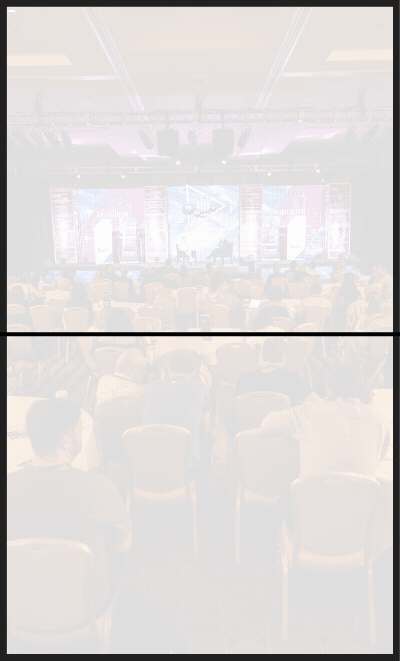Downloading a podcast may not be second nature to this group, but they are a generation that grew up listening to radio without distractions like social media. That’s right — older listeners might just be the next frontier in cultivating new podcast fans.
My cohosts and I recently started doing events at senior centers, and at every one I’ve had, folks line up at the end to hand me their phones to subscribe them to our show. This approach almost certainly requires more time and energy than setting up a social media campaign or even being interviewed on another podcast. However, I strongly feel it’s worth every minute of time in the long run — both for individual podcasters and the podcasting community as a whole.

Seniors in the podcast market

According to The Podcast Consumer 2019 from Edison Research, people over age 55 currently represent 16 percent of regular podcast listeners (people who listen to at least one podcast episode per month). This is an increase from 13 percent in 2018, but is still a long way from the 31 percent of the total population this group accounts for.
As you might imagine, some barriers to entry are the technical nature of finding and listening to podcasts, as well as the fact that podcasts simply may not be part of a daily routine that crystallized long before podcasts became mainstream.
People over age 55 currently represent 16 percent of regular podcast listeners (people who listen to at least one podcast episode per month)
One woman at our events told me that she was amazed to hear that her children and grandchildren listen to podcasts while they cook dinner or clean the house — things she would not have considered doing herself.
It’s true that our media patterns become ingrained, but I’m confident that behavior shifts occur among new listeners once they discover a reason to seek out podcasts. My show was that reason for at least a few people, and yours could be, too.

Engaged Minds and Lifelong Learning
It’s no secret that as a whole, people over the age of 65 watch cable news at far higher rates than other groups. While some of that might be a function of increased free time, I think it also speaks to a desire to keep one’s mind sharp, learn new things, and stay informed about what’s going on in the world.
Nearly everyone who attended our events at the senior centers had a perceptive, informed question to ask us about democracy (the topic of our show) or politics more broadly.
Podcasts provide an opportunity to do all of those things in a more engaging, focused format. Nearly everyone who attended our events at the senior centers had a perceptive, informed question to ask us about democracy (the topic of our show) or politics more broadly.

My experience has been that senior centers, like many resource facilities, are hungry for this type of programming. Activities staff may be overworked and eager for guest lectures. It takes a little legwork to make the connection and plan your event, but it’s definitely worth doing if you think your podcast would be a fit for the demographic.
Universities are also starting to see the potential in podcasts for their lifelong learning programs. Delaware Valley University's Center for Learning and Retirement now offers a podcast listening class developed and taught by Sara Weisman-Shein. The course covers both the history of podcasting and the basics of how to listen to them on a phone, tablet, or computer.
Many colleges and universities have similar programs that provide opportunities for retirees to take noncredit courses. Consider reaching out to those in your area to see whether you can teach a course or connect with someone who does to come in as a guest speaker.

Improving Social Interaction

Maintaining active social relationships can be a struggle in senior centers and retirement communities, but it’s an issue that affects other groups as well. According to the National Poll on Healthy Aging, more than a third of Americans age 50 to 80 said they experienced feelings of isolation and a lack of companionship. The same study found that just 30 percent of people in this age group socialized with family, friends, or neighbors more than once per week.
More than a third of Americans age 50 to 80 said they experienced feelings of isolation and a lack of companionship.
As Wil Williams has so eloquently written, podcasts can help people experiencing social isolation develop parasocial relationships and provide a sense of intimacy and companionship to those who need it. She describes discovering the podcast Radiolab: “It was a love letter to audio, to stories, to learning, and to the beautiful pursuit of conveying feelings and images with only sound.”
To my knowledge, no academic research has been done to study the effects of podcasts on social isolation, but my gut tells me that listening to podcasts might help reduce those feelings. If you know of research in this area, I would love to hear about it!
Podcasts can also serve as a catalyst for group discussion among older listeners. One of the centers we visited organizes a listening group around our show. The Podcast Brunch Club also has a ready-made format that would be perfect for any senior community to listen to and discuss.
All of these efforts promote lifelong learning and improve social interaction — a win-win for these new listeners and the podcasting community.

Expanding the Podcast Listener Market
While gaining new listeners for our show is great, doing this outreach to senior citizens is about way more than that. It’s about hearing questions that provide a different perspective and make us re-examine the way we’re doing things. It’s about helping individuals learn something new and engage with a medium that may have gone undiscovered.
It’s about hearing questions that provide a different perspective and make us re-examine the way we’re doing things.
And, it’s about providing a service that will help the podcasting community as a whole. Not only will this outreach help promote your show, but you’ll be introducing the medium as a whole to a new audience.
As more and more podcasts enter the market, it seems like we’re all competing for the same pool of listeners. There’s only so much time in the day for listening to podcasts, so we’ll eventually hit a saturation point unless the overall number of listeners expands.
If you’ve worked with senior communities as part of your podcast outreach, I would love to hear what’s worked (or not worked) for you.




Join the Movement